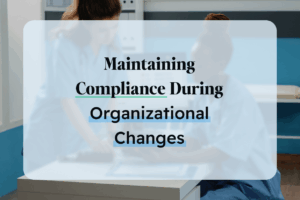Quality care has been a hallmark of the ASC health care model since the beginning. In fact, studies show that ASCs, on average, provide higher quality care for outpatient procedures when compared to hospitals. This is a significant benefit to ASCs, positioning them to be able to attract high-quality staff, increase patient volume, and achieve more overall growth in the healthcare space.
So, what is the secret behind successful quality care at ASCs? As it turns out, it’s less of a secret and more of a discipline called “Quality Management.” In this article, we will explore the unique ways in which ASCs ensure quality management, and uncover the multitude of positive outcomes these practices bring to ASCs, and ultimately, the patient experience.
Quality Management at ASCs
When understanding how ASCs maintain quality management standards, you’ll see that this does not happen in isolation. There are many associations and organizations that help support their efforts. For example, the ASC Quality Collaboration (ASC QC) developed 11 standardized quality measures that ASCs use to monitor and improve performance. These measures include tracking hospital transfers, emergency department visits, surgical site infections, and patient falls. They also provide toolkits and partner with technologies like Surglogs to ensure ASCs have the resources they need to meet these high quality standards.
ASCs often adopt Quality Assessment and Performance Improvement (QAPI) programs to continuously assess and improve their practices. Quality Assurance (QA) is a process used to ensure services are meeting quality standards at the expected level, while Performance Improvement (PI) is a proactive, data-driven approach focused on identifying and addressing gaps in care delivery. Involvement in these programs requires ASCs to set measurable objectives, collect data, execute improvement plans, and regularly review outcomes, all of which ensure high standards are continuously met.
To supplement these programs, ASCs also participate in rigorous staff training, benchmarking initiatives, and patient surveys to maintain their high status quo. Regular training ensures that all staff members are contributing to the highest level of quality management, as this can only be achieved in a collective effort. Benchmark data helps ASCs to compare their performance against industry standards, as well as their peers, while patient feedback helps identify trends and areas for improvement, fostering a culture of continuous growth.
While ongoing measures and programs to enhance quality management at ASCs can be extensive, the outcomes are extremely positive. Let’s explore some of these outcomes, and how they foster long-term trust and satisfaction among patients.
Patient Outcomes from ASC Quality Management
First, by adhering to Quality Collaboration (QC) measures, ASCs ensure consistent, high-quality care, which are paramount to a positive patient experience. When patients receive consistent care from the same providers, it fosters trust and open communication. Patients feel more comfortable discussing their health concerns, leading to better adherence to treatment plans and overall satisfaction.
Additionally, the systematic approach resulting from QAPI initiatives prioritizes patient satisfaction by addressing areas needing improvement. Standardized practices and protocols ensure that all healthcare providers follow the same procedures, reducing the risk of errors and enhancing patient safety. This is vital in maintaining high-quality care and preventing adverse events.
Effective quality management also includes training staff to communicate clearly and empathetically. Good communication helps patients understand their conditions and treatments, reducing anxiety and increasing trust.
Finally, patient feedback initiatives help ASCs continuously improve their services. When patients see their feedback being acted upon, they feel more engaged and satisfied with their care.
Your Partner in Quality Management
Overall, well-implemented quality management practices at ASCs play a pivotal role in enhancing patient experience and satisfaction. By prioritizing patient safety, streamlining care processes, and fostering a culture of continuous improvement, ASCs can deliver exceptional care that meets the highest standards.
As your ASC continues to evolve and refine its quality management strategies, know that you are not in it alone. Contact your partners at Surglogs today for additional advice, strategies, and programs that can help you and your patients.


